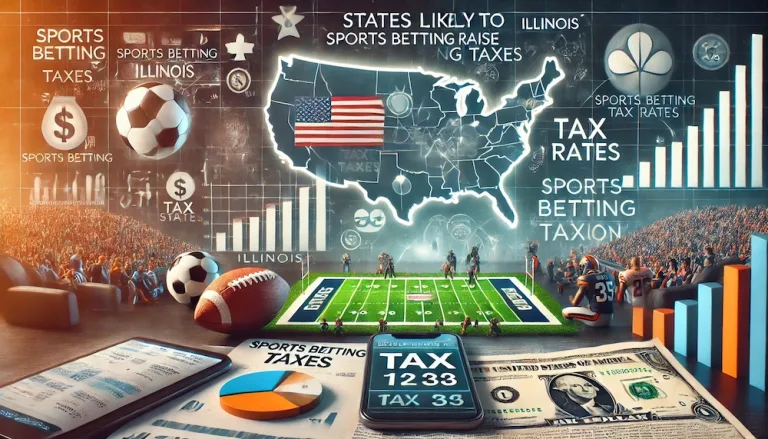Illinois recently passed a graduated tax scheme for online sportsbook companies, causing the largest operators by revenue to pay significantly more taxes than their smaller counterparts. This tax hike, effective July 1, has raised concerns that other cash-strapped states might follow Illinois’ lead and raise taxes on iGaming and sports wagering to fund other needs. However, at least one analyst believes that while tax increases are possible, the Illinois model is unlikely to be widely adopted.
Analyst Insights on Tax Hikes
In a new report to clients, Stifel analyst Jeffrey Stantial highlighted that while gaming companies can manage higher taxes by reducing marketing and promotional expenditures, investors are more apprehensive. This is reflected in the recent declines of stocks like DraftKings (NASDAQ: DKNG) and FanDuel parent Flutter Entertainment (NYSE: FLUT).
“Our key takeaways include: 1) additional OSB tax rate hikes are likely to occur, though less frequently than feared with IL’s graduated structure unlikely to proliferate, 2) various international case studies indicate the majority of contribution profit impact from a modest effective tax rate hike likely proves mitigable for scaled operators, and 3) negative sentiment shifts around tax hike risk may yield attractive buying opportunities for DKNG given a continued upside bias to estimates,” wrote Stantial.
Under the new Illinois tax scheme, FanDuel and DraftKings will see their tax rates surge to 37% and 36%, respectively, from the current level of 15%.
Mixed Outlook for Sports Betting Taxes
Some investors fear that other states will emulate Illinois. However, a substantial sports wagering tax hike proposed in Massachusetts after Illinois’ increase did not advance, and New Jersey’s recently proposed budget did not include a sports betting tax increase. This temporarily alleviates concerns that New Jersey might boost sports wagering levies.
Stantial noted that the worry isn’t just about existing sports-wagering states raising taxes. Investors are also concerned that new states approving iGaming or sports betting might implement higher tax rates than the industry is used to.
Currently, Delaware, New Hampshire, New York, and Rhode Island apply a 51% tax to sports betting, with Pennsylvania and Illinois close behind. On the positive side, increasing sports betting taxes could encourage some states to approve online casinos, potentially increasing the number from the current six.
“We believe OSB tax rate hikes may serve as a precursor for renewed iCasino expansion efforts, which can provide more meaningful tax revenue uplift,” added Stantial.
Strategies for Managing Higher Taxes
To mitigate the impact of higher taxes in Illinois, operators are likely to cut back on promotional spending. Stantial noted that in a base case scenario, 70% of the profit impact from a theoretical 10% tax increase in any state could be offset by reducing promotional expenditures.
Regarding other states that might consider raising sports betting taxes in the near term, Pennsylvania and Michigan appear to be the most likely candidates. “Pennsylvania and Michigan appear the only potential candidates to consider tax hikes among the limited states with CY24 legislative sessions still ongoing,” concluded the analyst.
Conclusion
While Illinois’ new graduated tax scheme for sports betting has raised concerns about similar moves in other states, experts believe that widespread adoption of this model is unlikely. However, tax increases are still a possibility in some jurisdictions. Operators can manage these increases by adjusting their promotional spending. As states explore new ways to generate revenue, the interplay between sports betting and iGaming regulations will continue to evolve, potentially leading to new opportunities in the market.

David Harrison stands tall in gambling journalism, marrying his firsthand casino experiences with a deep understanding of betting psychology. His articles transform complex gambling jargon into engaging tales of strategy and chance, making the world of betting accessible and enjoyable. David’s knack for narrative extends beyond print, making him a sought-after speaker on gambling trends and future bets. In the realm of gambling, David is both a scholar and a storyteller, captivating readers and listeners alike.


